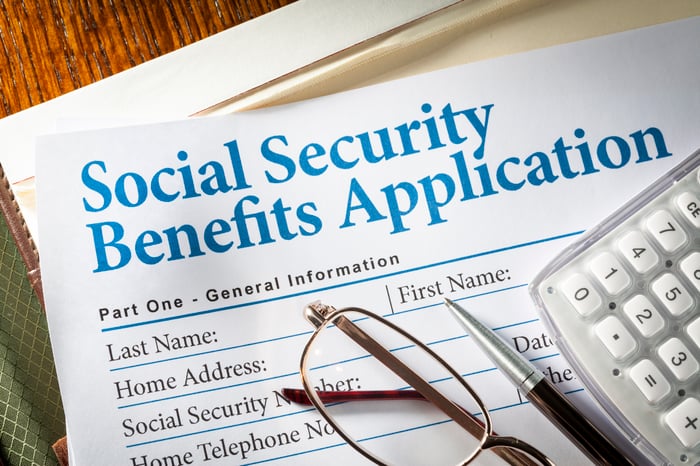What's the most popular age to file for Social Security retirement benefits? It's 62 -- by far. Many Americans are ready to retire as early as possible after working for decades.
I understand the sentiment. However, I don't plan to follow the crowd. Here are three reasons I won't claim Social Security at age 62.

Image source: Getty Images.
1. I want to keep working
Like many people, I've spent much of my career working in offices with constant pressure and tight project deadlines. If I were still in that kind of environment, I'd probably look to retire as early as possible and claim Social Security benefits at 62.
However, I now write about investing, personal finance, and retirement planning. I love what I do. Sure, there's some pressure and some deadlines with my current job. But compared to what I was accustomed to in the past, what I do now is relatively stress-free.
That said, I plan to reduce how much I work when I reach 62. I'm hoping to ease into full retirement over several years. Why not go ahead and claim Social Security at the outset of this transition? I expect to make enough money that I would only receive minimal if any retirement benefits even if I file at age 62.
Social Security applies an early retirement earnings test. If you're younger than your full retirement age (FRA) in 2025 for the entire year, $1 for every $2 you earn above $23,400 will be deducted. This means that if you make $83,400 or more during the year and your Social Security benefits are $30,000, all of your benefits will be deducted.
Sure, you'll receive the money withheld once you reach your FRA. The earnings limit is also much higher ($62,160) and the amount deducted is less strict ($1 for every $3 earned above the limit) during the year you reach your FRA. However, I don't want to claim retirement benefits that I won't get until several years later.
2. I like the safe return on investment for waiting
Social Security imposes a steep penalty for claiming benefits before your FRA. If I begin receiving retirement benefits at age 62, I'll make 30% less than I would if I waited until my FRA of 67. And if I hold off until age 70 to claim benefits, the amount increases by 24% more.
Importantly, I won't miss out on the annual cost-of-living adjustments (COLAs) by deferring when I claim Social Security benefits. The Social Security Administration will adjust my benefit amount each year to reflect any increases from the COLAs.
Could I make a higher return by claiming Social Security at age 62 and investing the money instead of living off of it? Maybe, if I actually received the benefits instead of having all or most of them withheld because of my earnings. However, I like the idea of a safe, inflation-adjusted return on investment associated with waiting to claim Social Security.
3. I expect to live at least into my 80s
There is one factor that would make me look at retirement and when to claim Social Security with a much different perspective -- my expected longevity. If I were concerned about dying in my 60s or early 70s, I'd retire at 62, take Social Security, and make the most of the time I had left.
But I expect to live at least into my 80s. I'm in good health. Most of my grandparents and great-grandparents lived into their 80s or 90s. I have some relatives who lived past 100.
Anything could happen, of course, but I'm hopeful that my DNA works to my advantage. I want a higher Social Security retirement benefit -- and I want to receive it for a very long time.
Your situation could be markedly different
Those are my reasons for not claiming Social Security at age 62. However, your situation could be markedly different from mine. The Social Security Administration is frequently asked what the best age is for receiving benefits. The agency's response is spot on: "The answer is that there's not a single 'best age' for everyone and, ultimately, it's your choice."




